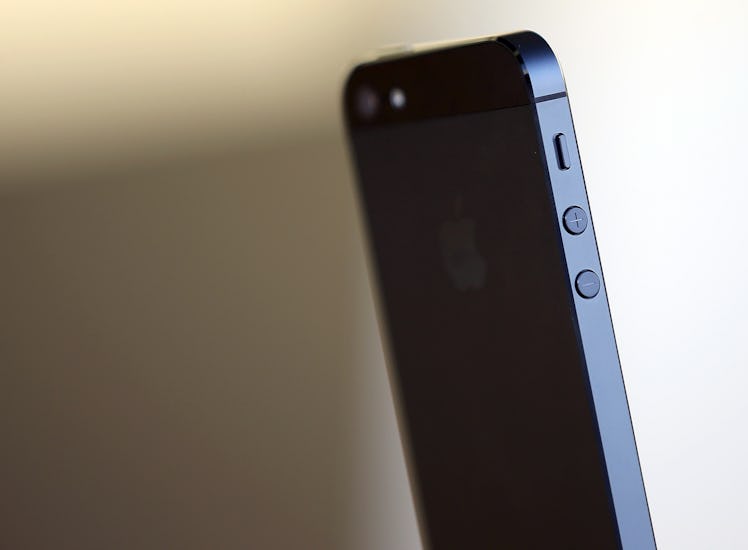
This Is Why You Think Your iPhone Slows Down When A New One Comes Out
Unless you're one of the few who can afford to get every single smartphone model that emerges from Apple on an annual basis, there's a likely chance that you're an iPhone 6, 5, or even 4 owner. But that's honestly OK, because for the most part, Apple's smartphones hold up pretty well... aside from the fact that many people believe that their older phones suspiciously slow down after each new iPhone model release. If you're an Apple or iPhone user, and if you suspect that your smartphones' memory capacity is deteriorating over time, you may be asking: Does Apple slow down iPhones on purpose? Many are skeptical, but we have the answer.
Many started heavily questioning Apple's potentially malignant intentions (a.k.a. to make us spend more of that ca$h money), after a Reddit user claimed that his phone started working faster after switching his iPhone 6 battery. According to the post, his iPhone's performance and clock speed proceeded to skyrocket. His hypothesis was that Apple slows down less recent iPhone models to encourage users to upgrade, and that people can cheat the system by just buying a new battery. Apple and iPhone fans then started feeding into the theory, resurrecting similar rumors dating back to 2014, when people stared questioning the reasons behind Apple's software updates.
While this would be smart — yet utterly conniving coming from our forever-beloved Apple — the popular electronics company assures users that while newer batteries are able to maintain a charge longer and can help the phone run faster, in general, they are most certainly not slowing down older phone models. Older batteries merely slow down based on wear, phone temperature, and even battery life.
Apple provided TechCrunch with the below statement, inquiring about their deteriorating phone batteries,
“Our goal is to deliver the best experience for customers, which includes overall performance and prolonging the life of their devices. Lithium-ion batteries become less capable of supplying peak current demands when in cold conditions, have a low battery charge or as they age over time, which can result in the device unexpectedly shutting down to protect its electronic components.
If your model is older than an iPhone 6, however, your smartphone is more likely to be heavily affected by time and temperature. Apple told The Verge that iPhones 6, 6 Plus, 7, etc. have been improved with certain updates, which better prevent battery problems resulting from time and temperature. They said,
Last year we released a feature for iPhone 6, iPhone 6s and iPhone SE to smooth out the instantaneous peaks only when needed to prevent the device from unexpectedly shutting down during these conditions. We’ve now extended that feature to iPhone 7 with iOS 11.2, and plan to add support for other products in the future.
Apple went on to explain that older lithium-ion batteries cause the device to shutdown or run slowly, as they can't handle time and temperature as well as new iPhones. Batteries used in new phones, however, don't require the phone to slow or shut down to prevent damage over time or in drastic temperatures.
So, if you're the owner of an old iPhone 4 and you absolutely cannot fathom why it's shutting down and running slower than your friend's iPhone 8, here's a hint: most batteries deteriorate as they get older, and as your iPhone 6 gets older, your battery wears down. So before you reach out to Apple with an infuriated message, or spend hours on hours at the genius bar, realize that patience is a virtue. And, similar to humans, older iPhone batteries just can't run as quickly or avoid shut-downs in in-climate weather, as well as newer phones can. Newer versions of phones, however, have improved, longer-lasting batteries, so that's definitely something to look forward to during your next trip to the Apple store.
Check out the entire Gen Why series and other videos on Facebook and the Bustle app across Apple TV, Roku, and Amazon Fire TV.